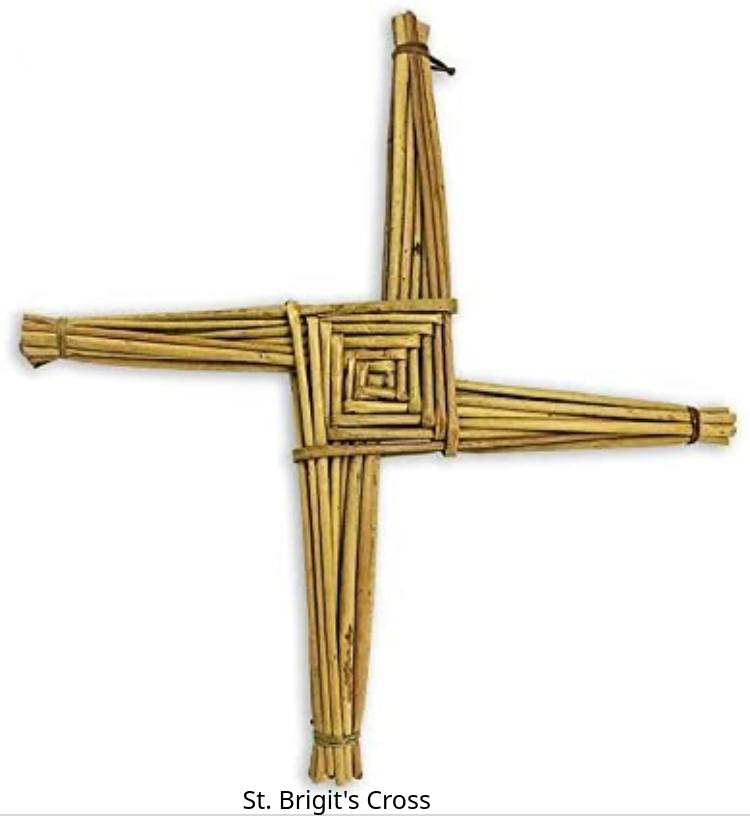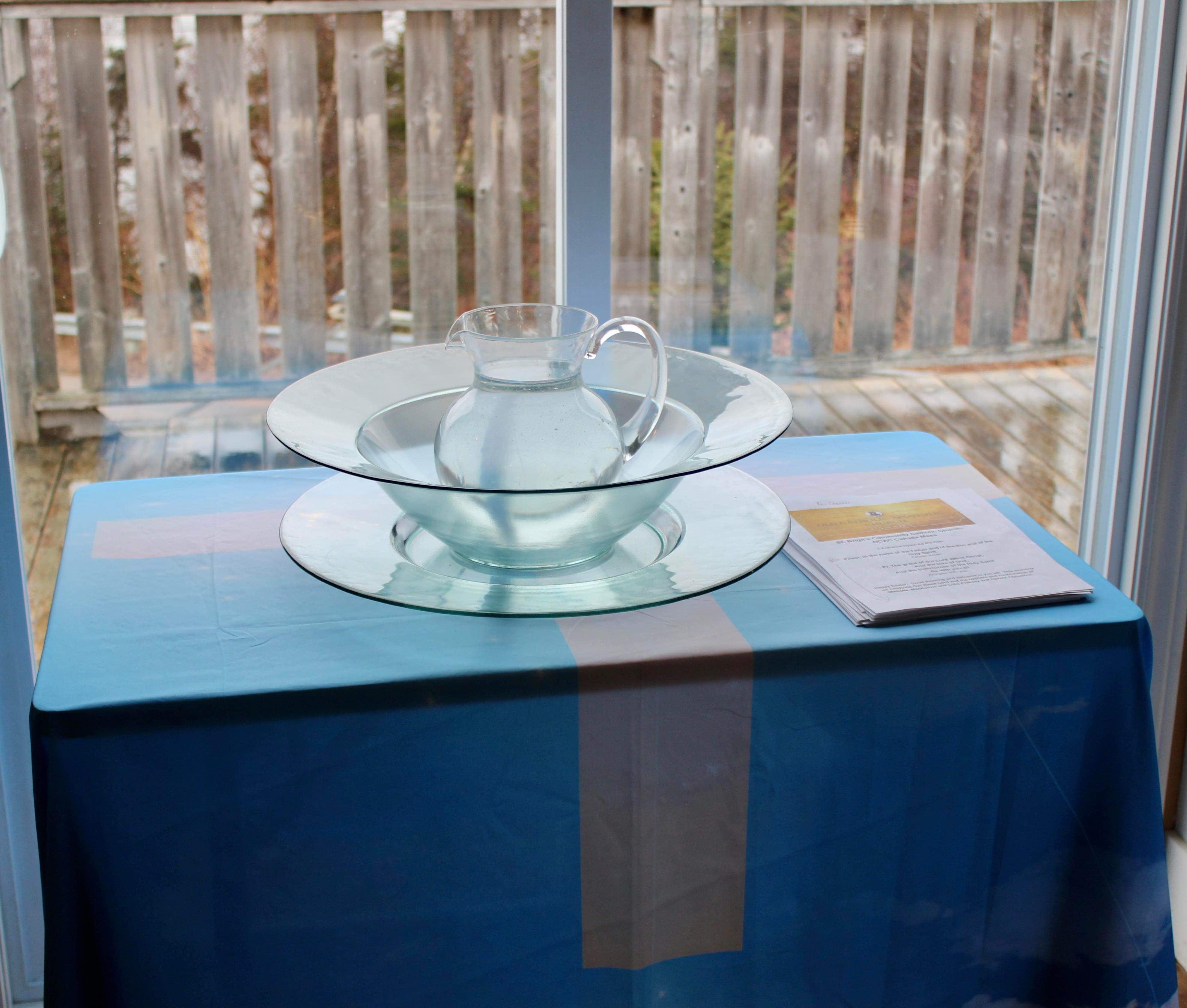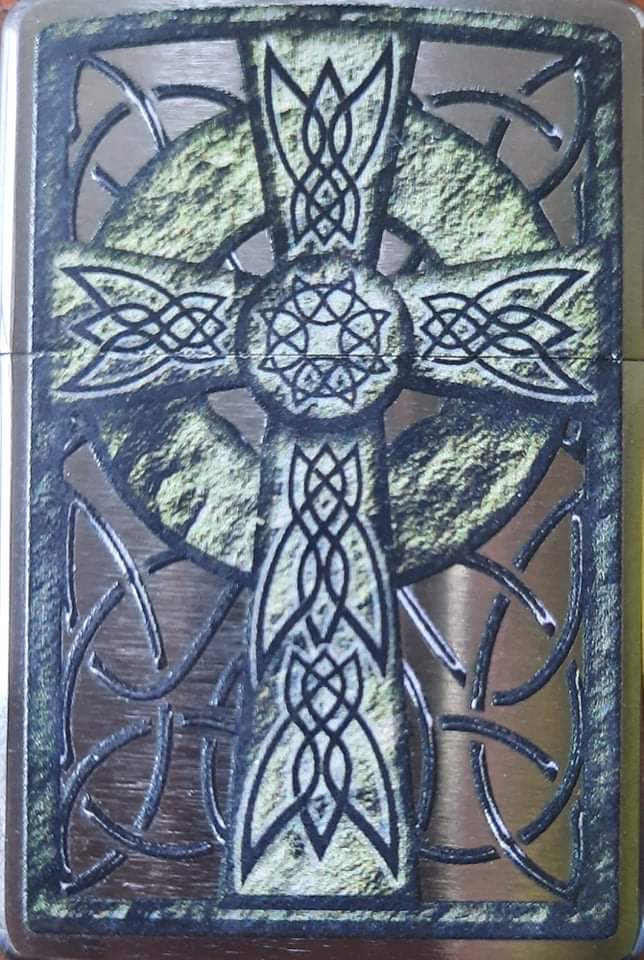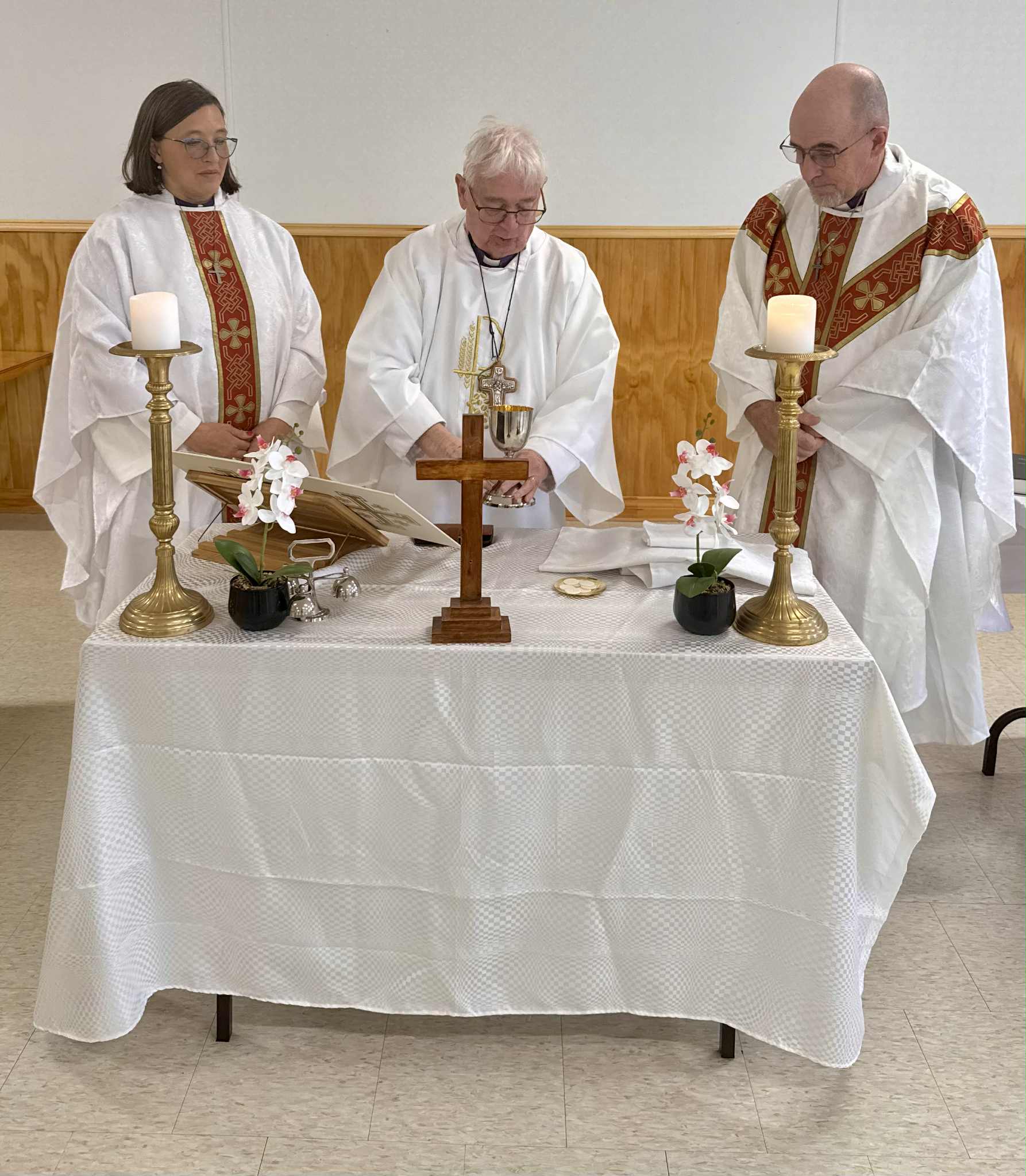- Home
- simply catholic
- Frequently Asked Questions
Simply Catholic and Welcoming You
Frequently Asked Questions

St. Brigit's Cross Made From Tied Palms or Reeds a Symbol of Irish Catholicism
In frequently asked questions here we rely on the Catechism of the Catholic Church (CCC) which is from the Roman/Latin Rite and supplement the answers with information from or pertaining to the other Catholic Rites as needed. Our answers will be based on or directly quoted from these sources. Additionally we tend to refer to the Nicene Creed or the Apostles Creed when appropriate.
This is not plagiarism. It is simply the most proper way to answer questions of faith. Answering such questions is not the time to ‘wing it’ or make up personal answers on the fly. The best answers are the catechism answers as these are the authoritative answers from the proper teaching authorities of the Catholic church, from the Latin and other Catholic Rites.
So yes, you will or should get the same answers from any Catholic priest with variations depending on which church/rite they represent, for most questions. Obviously we will have different answers on questions of inclusivity, sexuality within and outside of marriage, divorce/remarriage and matters of exclusion, particularly regarding sensitive areas such as suicide, mental health and other judgment issues.
Probably the most ‘different’ answers given will be when we are asked specifically for the answers to questions where we, as an inclusive branch of Catholicism do indeed differ from the beliefs, traditions and stances of the more mainstream churches. In those instances we will try to maintain the habit of giving the mainstream answer and our take on these specific areas.
What is the nature of God?
As Catholics we believe God is one, eternal, all-powerful, all-knowing, and omnipresent, yet also exists in three divine persons: the Father, the Son, and the Holy Spirit, known as the Trinity. God is both transcendent and immanent, meaning He exists above and beyond creation while also being intimately involved in it. Catholics also believe God is a personal being, full of love, truth, and a perfect being.
In the Nicene Creed we say; “We believe in one God, the Father, the Almighty, Maker of heaven and earth, of all that is seen and unseen”.
How do we know God exists?
God's existence can be known through both reason and revelation. The natural world, human nature, and the order of the universe point to a creator, while divine revelation through scripture and tradition provides further insight into God's nature and plan.
What is the relationship between the Father, Son, and Holy Spirit?
In Catholic theology, the Father, Son, and Holy Spirit are distinct persons within one God, sharing the same divine nature. The Father is the origin and source of the Son and Holy Spirit. The Son, Jesus Christ, is the Word of God, ‘eternally begotten’ by the Father. The Holy Spirit is the love or bond of affection between the Father and the Son, proceeding from both.
“I believe in the Holy Spirit, the Lord, the giver of life, who proceeds from the Father and the Son, who with the Father and the Son is adored and glorified, who has spoken through the prophets”. (Nicene Creed)
Why did God create the world?
God created the world not out of necessity, but out of his own free will and for his glory. God desired to create beings who could experience his love and goodness and benefit from a relationship with him. The creation story in Genesis highlights this by portraying a world that was initially good and ordered, reflecting God's perfect design.
What is the meaning of sin?
Sin is understood as an offense against God, a rupture of communion with Him and a harm to relationships with others. It's essentially a voluntary act that violates God's law and damages one's relationship with God and others. Sin is not just a bad action, but a direct rejection of God's love and a turning away from Him.
How can we be saved according to the Catholic Catechism?
According to the Catholic Catechism, salvation is achieved through the grace of God, offered freely through Jesus Christ, and accessed through faith, repentance, and baptism. It emphasizes that salvation is not earned but a gift, requiring a response of faith and a willingness to live a life of love and obedience to God. The Catechism emphasizes that salvation is a gift from God, not something humans earn through their own merit or good works.
Frequently Asked Questions,The Sacraments

A Baptismal Font - Baptism is Considered The Sacrament "Necessary" For Salvation
Sacraments are sacred rituals through which God's grace is transmitted to individuals. They are visible signs of God's invisible grace, and there are seven of them: Baptism, Confirmation, Eucharist (Communion), Reconciliation (or Confession), Anointing of the Sick, Holy Orders, and Marriage.
Is baptism necessary for salvation?
The Church teaches that baptism is necessary for salvation because it is the sacrament through which we receive the grace of salvation. It's the way we know of, and the way God revealed to us, to receive this grace.
While baptism is considered necessary, the Church also believes that God can act outside of the sacraments to draw individuals to faith and salvation. This is why the Church acknowledges that there may be individuals who are saved without baptism, particularly in cases where they are unable to receive it due to no fault of their own.
Is confirmation necessary for salvation?
No, Confirmation is not necessary for salvation. While receiving Confirmation is an important step in a Catholic's faith journey, it's not a prerequisite for achieving salvation. Salvation is a gift from God through faith in Jesus Christ and cooperation with His grace. Baptism is considered the foundational sacrament for salvation.
Is the Eucharist necessary for salvation?
While Catholics believe the Eucharist is a central sacrament and source of spiritual nourishment, it is not strictly necessary for salvation in the same way baptism is. The faithful reception of the Eucharist is considered highly beneficial and a means of grace, but individuals can still be saved without regularly receiving communion, especially if they are not yet able to understand its significance or are facing circumstances that prevent them from attending Mass.
Frequently Asked Questions, Death and Purgatory

A Celtic Cross of a Type Often Seen on Headstones on Graves Worldwide
According to Roman Catholic belief, after death, a person's soul is judged and then enters one of three destinations: Heaven, Purgatory, or Hell. Heaven is the ultimate state of happiness for those who have lived in grace with God. Purgatory is a place of purification for those who die in God's grace but are not yet fully cleansed of sin. Hell is the state of eternal separation from God for those who have rejected His love.
What is the role of purgatory?
The Catechism of the Catholic Church defines purgatory as a “purification, so as to achieve the holiness necessary to enter the joy of heaven,” which is experienced by those “who die in God's grace and friendship, but still imperfectly purified” (CCC 1030).
Of all the Catholic Rites only the Latin/Roman Catholic Rite embraces the concept of purgatory. Other Catholic Rites including Orthodox, Old Catholic and Community Catholics reject this concept outright. Meaning that we do not believe purgatory exits!
Frequently Asked Questions, Church Authority

Three Bishops Confect the Holy Eucharist
Within the Roman Catholic Church, the authority to teach officially and authentically comes from the Magisterium, which includes the Pope and the bishops in communion with him. The Magisterium's teaching authority is understood to be a continuation of the apostolic tradition passed down from the apostles.
For Catholic Churches not in the Roman/Latin Rite, the authority to teach rests with the Episcopal leadership of each Rite and their specific version of the Magisterium.
What is the role of the Pope?
The Pope is the Bishop of Rome and head of the Roman Catholic Church, serving as the spiritual leader of the worldwide Catholic community. The Pope's role encompasses leadership, teaching, and governance of the Church, making him the visible source and foundation of unity for Catholics worldwide.
This same role is fulfilled in each of the other Catholic churches by their Patriarch, Metropolitan Bishop or Archbishop. Other Catholic churches have never accepted the supremacy nor infallibility of the Pope. Instead they remain under the guidance of the Holy Spirit and lead by a Council or College of Bishops, rather than by any one person being indisputably in charge.
What is the authority of the Church's Magisterium?
The Magisterium, or teaching authority of the Roman Catholic Church, holds the authority to authentically interpret the Word of God, ensuring that its teachings are faithful to the Deposit of Faith. This authority is vested in the Pope and the bishops, acting in union with him. The Magisterium's teachings, particularly on matters of faith and morals, are considered infallible, meaning they are free from error.
In other Catholic Rite churches this authority is vested in their College of Bishops.
Does the Church's tradition change?
Yes, Church tradition can be retained, modified, or even abandoned under the guidance of the Church's teaching authority. This allows the tradition to be presented and handed on anew to each generation, retaining its core message while adapting to changing circumstances.
Traditions can be adapted or even abandoned if they no longer serve the best interests of the Church's mission. The Holy Spirit guides the Church in these decisions, ensuring that the core message of Tradition remains intact.
Recent Articles
-
The Basic Catechism of the Catholic Church
Feb 12, 26 11:03 AM
A basic catechism of any rite or branch of the catholic church acts as a primary reference for teaching the faith -
The Divine Office
Feb 07, 26 11:07 AM
The Divine Office The Divine Office, also known as the Liturgy of the Hours or Opus Dei ("Work of God"), is the official, daily set of prayers of the Catholic Church -
Women Being Removed or Voided from Scriptures
Jan 17, 26 05:06 PM
The concept of women being "removed" or "voided" from scriptures refers to both the physical exclusion of female narratives in historical texts...
Boat Harbour West, Newfoundland, Canada. Cell Number 709-276-0626
Join Us Also on Our St. Brigit's Community Catholic Church Prayer group on Facebook: https://www.facebook.com/groups/324523956473448


